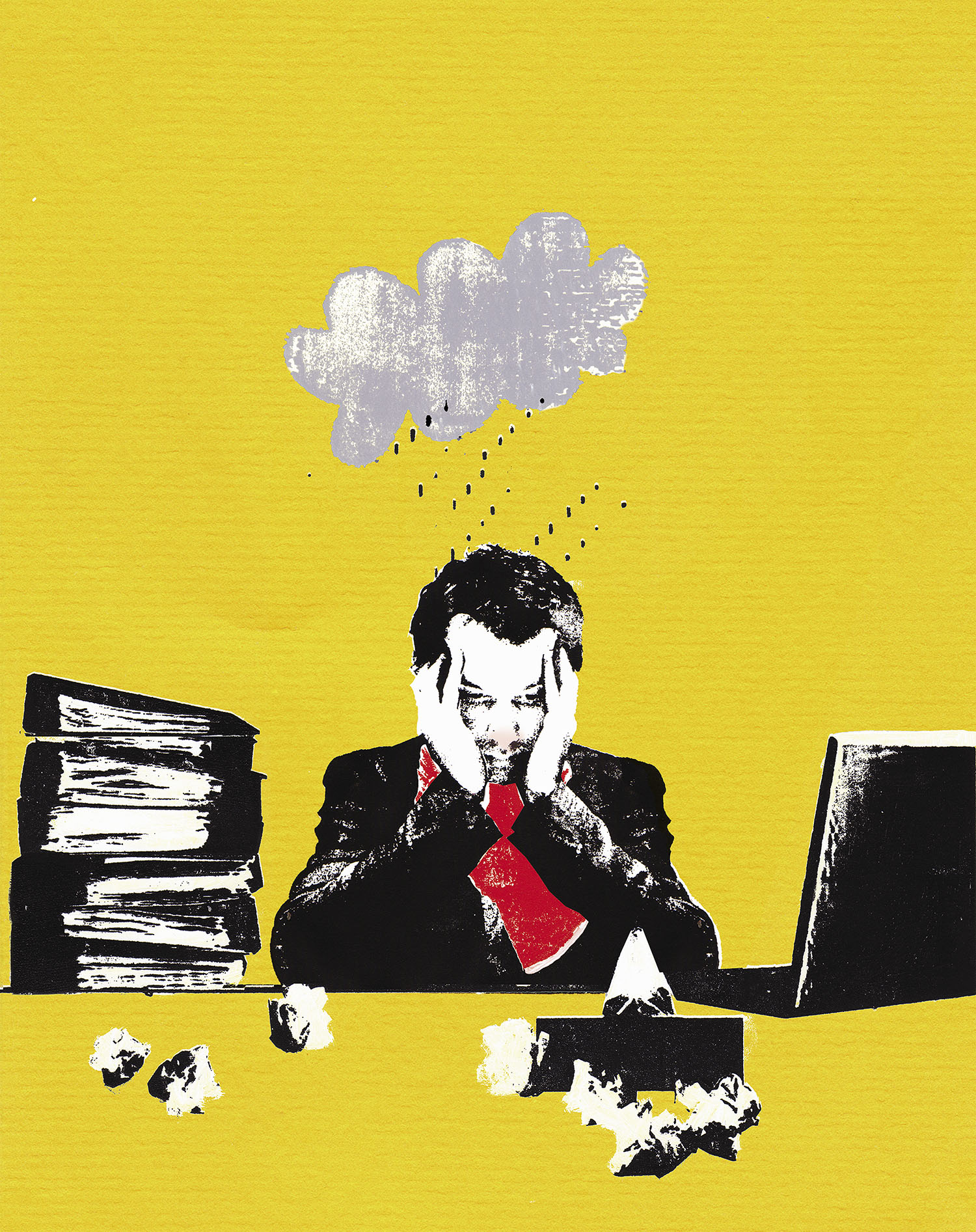The week's best financial advice
Three top pieces of financial advice — from how to stress test your portfolio to dubious warnings on money trackers

A free daily email with the biggest news stories of the day – and the best features from TheWeek.com
You are now subscribed
Your newsletter sign-up was successful
Here are three of the week's top pieces of financial advice, gathered from around the web:
When brokers get the blues
"Bad weather isn't good for investors," said Charlie Wells at The Wall Street Journal. Gloomy conditions outside can trigger "mild depression" in brokerage analysts, a new Stanford University study has found, making brokers slower to respond to earnings announcements. Analysts working in bad weather were 9 to 18 percent less likely to issue buy or sell recommendations following such announcements. Late reports "can mean missed opportunities for investors large and small." "In behavioral finance, we like to think in terms of humans as completely rational beings," said Stanford accounting professor Ed deHaan. "But we're learning from psychology that, obviously, humans are very affected by all sorts of stimuli."
The Week
Escape your echo chamber. Get the facts behind the news, plus analysis from multiple perspectives.

Sign up for The Week's Free Newsletters
From our morning news briefing to a weekly Good News Newsletter, get the best of The Week delivered directly to your inbox.
From our morning news briefing to a weekly Good News Newsletter, get the best of The Week delivered directly to your inbox.
Dubious warnings on money trackers
Big banks "wary of hacking risks" are trying to scare customers away from apps and websites that help users track their spending, said Liz Weston at Reuters. JPMorgan Chase and Capital One, among others, have warned customers against sharing their account passwords with third-party services like Mint.com, saying individual users could be liable for any fraud on their accounts. "The banks' warnings, however, are off base." Federal banking rules "sharply limit" customers' liability for unauthorized transactions as long as they report fraud promptly. Even negligence, such as writing a PIN on a debit card, does not increase a customer's liability. Critics say that banks are likely just as worried about competition from account aggregators as they are about hacking.
How to stress test your portfolio
"While most of us think we're comfortable with risk, it's often not true," said Ryan Derousseau at US News. To really get a sense of what you're willing to endure in a downturn, give your portfolio a stress test. Financial advisers can provide detailed analyses of how your portfolio will react in different scenarios, like an interest rate hike or a 10 percent drop in the stock market. These hypotheticals can help investors cut back on their risk if they're taking on too much, or avoid the temptation to sell when the market hits turbulence. Stress testing can also reveal the impact of fees, which can ultimately hurt a portfolio more than any downturn. To get a comprehensive analysis, go through your adviser. HiddenLevers.com also offers free software for stress testing based on your portfolio allocation.
A free daily email with the biggest news stories of the day – and the best features from TheWeek.com
-
 Political cartoons for February 16
Political cartoons for February 16Cartoons Monday’s political cartoons include President's Day, a valentine from the Epstein files, and more
-
 Regent Hong Kong: a tranquil haven with a prime waterfront spot
Regent Hong Kong: a tranquil haven with a prime waterfront spotThe Week Recommends The trendy hotel recently underwent an extensive two-year revamp
-
 The problem with diagnosing profound autism
The problem with diagnosing profound autismThe Explainer Experts are reconsidering the idea of autism as a spectrum, which could impact diagnoses and policy making for the condition
-
 The pros and cons of noncompete agreements
The pros and cons of noncompete agreementsThe Explainer The FTC wants to ban companies from binding their employees with noncompete agreements. Who would this benefit, and who would it hurt?
-
 What experts are saying about the economy's surprise contraction
What experts are saying about the economy's surprise contractionThe Explainer The sharpest opinions on the debate from around the web
-
 The death of cities was greatly exaggerated
The death of cities was greatly exaggeratedThe Explainer Why the pandemic predictions about urban flight were wrong
-
 The housing crisis is here
The housing crisis is hereThe Explainer As the pandemic takes its toll, renters face eviction even as buyers are bidding higher
-
 How to be an ally to marginalized coworkers
How to be an ally to marginalized coworkersThe Explainer Show up for your colleagues by showing that you see them and their struggles
-
 What the stock market knows
What the stock market knowsThe Explainer Publicly traded companies are going to wallop small businesses
-
 Can the government save small businesses?
Can the government save small businesses?The Explainer Many are fighting for a fair share of the coronavirus rescue package
-
 How the oil crash could turn into a much bigger economic shock
How the oil crash could turn into a much bigger economic shockThe Explainer This could be a huge problem for the entire economy